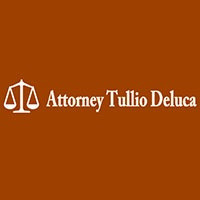Friendsville Credit & Debt Lawyer, Pennsylvania
Not enough matches for Friendsville Credit & Debt lawyer.
Below are all Friendsville Bankruptcy & Debt lawyers.
Brett Michael Freeman
✓ VERIFIEDConsumer Protection, Consumer Bankruptcy, Litigation
Attorney Brett Freeman has devoted his career to helping those who are having financial difficulties, and to making sure that those individuals are tr... (more)
Tullio DeLuca
✓ VERIFIEDBankruptcy & Debt, Accident & Injury, Divorce & Family Law, Employment, Estate
Tullio DeLuca was admitted to bar in 1990 in Pennsylvania, US District Court, Middle, Eastern and Western Districts of Pennsylvania. Attorney DeLuca r... (more)
Molly Dempsey Clark
Election & Political, Family Law, Business Organization, Collection
Status: In Good Standing
Carlo Sabatini
Bankruptcy, Collection, Credit & Debt, Employment
Status: In Good Standing Licensed: 25 Years
Jason Bruce Reeves
Deportation, Social Security, Insurance, Credit & Debt
Status: In Good Standing Licensed: 8 Years
Joan Lednovich
Deportation, Child Support, Insurance, Credit & Debt
Status: In Good Standing Licensed: 34 Years
Anne Marie Howells
Divorce & Family Law, Criminal, Bankruptcy, Bankruptcy & Debt
Status: In Good Standing Licensed: 25 Years
Brenda M. Kobal
Divorce & Family Law, Bankruptcy & Debt, Accident & Injury
Status: In Good Standing Licensed: 31 Years



